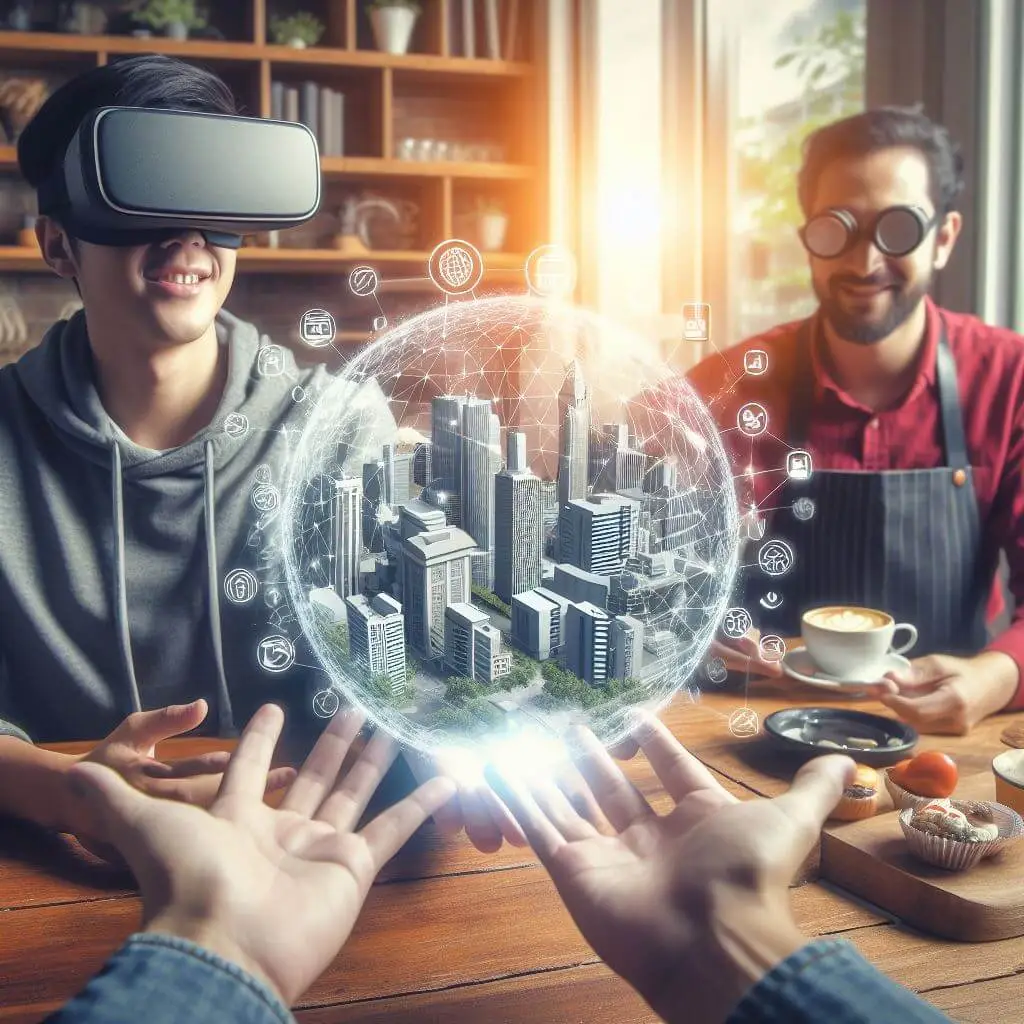Blog
Latest News
& Updates
May 13, 2024
Unlocking the Future of Local SEO for Small Businesses: A Comprehensive Guide
In today’s digital age, the landscape of local business is constantly evolving. To stand out in a crowded market, small businesses need to embrace innovative strategies that leverage emerging technologies and trends. This article is your guide to unlocking the future of local SEO, where we’ll explore the latest advancements and provide actionable insights to help your business thrive. From the rise of voice search to the immersive experiences offered by augmented reality (AR) and virtual reality (VR), the opportunities for small businesses in local SEO are endless. By staying ahead of the curve and adapting to changing consumer behaviors, you can not only improve your online visibility but also create memorable experiences that set your business apart.
One of the most significant advancements in this realm is the rise of voice search, which demands a fresh approach to optimization.

Voice Search Optimization: Navigating the Voice Search Revolution
Recently, voice search has become increasingly prevalent, with more consumers turning to voice-activated assistants like Siri, Alexa, and Google Assistant to find information on the go. For small businesses, optimizing for voice search is no longer optional—it’s essential for staying competitive in the digital marketplace. To excel in voice search optimization, understanding how consumers use voice commands to search for local businesses is crucial.
- Focus on Conversational Keywords: Identify conversational keywords and phrases related to your business and incorporate them naturally into your website content. Consider how customers might phrase their queries when speaking, and tailor your content accordingly.
- Claim Your Business Listings: Ensure your business listings are accurate and up-to-date across all relevant platforms. Voice assistants often pull information from these directories, so claiming and optimizing your listings is essential for maximum visibility.
- Provide Clear and Concise Answers: Aim to provide clear and concise answers to common questions that users may ask about your business. Structured data markup can help search engines understand the context of your content and improve your chances of appearing in featured snippets.
By implementing these voice search optimization strategies, you can ensure your business remains visible to customers, no matter how they choose to search.
Augmented Reality (AR) and Virtual Reality (VR): Redefining Local Customer Experience
Beyond voice search, enhancing the customer experience is crucial for local businesses, and this is where augmented reality (AR) and virtual reality (VR) come into play. These immersive technologies have the potential to revolutionize how small businesses engage with their customers. They offer new ways to showcase products, create memorable experiences, and drive foot traffic to physical locations.
AR and VR technologies create virtual environments or overlay digital content onto the real world, providing users with immersive experiences that blend the physical and digital realms. This opens up a world of possibilities for enhancing the local customer experience in creative and innovative ways.
- Virtual Showrooms and Interactive Displays: Businesses can use AR and VR to create virtual showrooms or interactive displays that allow customers to explore products in a dynamic and engaging manner.
- Immersive Brand Experiences: AR and VR can be used to offer virtual tours, interactive menus, or other engaging experiences that bring brands to life.
By embracing AR and VR technologies, small businesses can differentiate themselves from competitors and create memorable experiences that resonate with customers. As consumers increasingly seek out businesses that offer unique and engaging experiences, highlighting your AR and VR offerings online can attract new customers and drive traffic to your physical location.
Local SEO for Smart Speakers and Smart Devices: Embracing the Voice-Activated Future
As immersive technologies like AR and VR redefine customer experiences, the rise of smart speakers and devices further emphasizes the importance of voice-activated interactions in local search. Consumers are now turning to voice commands to find businesses, products, and services in their local area.
Optimizing your business listings and content for voice-activated commands is essential to ensure your small business remains visible and competitive in this evolving digital landscape.
- Focus on Natural Language: Incorporate long-tail keywords and phrases that reflect common voice search queries to increase your chances of appearing in voice search results.
- Maintain Accurate Listings: Ensure your business listings are accurate, consistent, and up-to-date across all platforms and directories to improve your chances of being featured in voice search results.
By embracing the voice-activated future and optimizing your online presence for smart devices, you can position your local business for success in the increasingly voice-driven world of local search.
AI-Powered Personalization: Crafting Tailored Local Search Experiences
Optimizing for smart devices lays the foundation, but to truly stand out, small businesses need to leverage the power of AI-powered personalization. Artificial intelligence (AI) is revolutionizing local SEO by enabling personalized experiences tailored to individual user preferences.
AI algorithms analyze vast amounts of data to understand the unique preferences and intent of each user. This allows small businesses to gain deeper insights into their target audience and create highly targeted and personalized local search experiences that resonate with their customers.
Furthermore, AI-powered personalization enables businesses to adapt their SEO strategies in real-time based on changing user preferences and market trends. By continuously analyzing and optimizing their content, keywords, and website structure, businesses can ensure they are delivering the most relevant and valuable information to their audience.
Blockchain and Local Trust: Building Credibility in the Digital Age
While personalization is essential, building trust and credibility remains a cornerstone of local business success. In this context, blockchain technology emerges as a game-changer. By providing a decentralized and immutable ledger of transactions, blockchain offers a new level of transparency and security that can significantly enhance trust in local business transactions.
One of the most promising applications of blockchain is its potential to revolutionize the way businesses manage reviews and ratings. Blockchain-powered review systems create a transparent and tamper-proof record of customer feedback, ensuring businesses can trust the authenticity of the reviews they receive and consumers can rely on the accuracy of the ratings.
Furthermore, blockchain technology can improve the overall transparency of local business transactions. By recording all interactions and transactions on a public ledger, blockchain provides a comprehensive and verifiable record of a business’s activities, fostering greater transparency and accountability. This transparency can help small businesses build trust with customers, partners, and other stakeholders.

Location-Based Marketing Strategies: Targeting Local Audiences with Precision
With a foundation of trust established through transparency and authenticity, small businesses can effectively leverage location-based marketing strategies to target local audiences with precision. By harnessing the power of geolocation data and innovative technologies, businesses can deliver targeted messages and promotions to consumers based on their physical location.
- Geofencing: Create virtual boundaries around specific geographic areas to deliver targeted messages or offers to customers when they enter or exit these predefined areas.
- Beacon Technology: Use Bluetooth-enabled beacons to detect nearby mobile devices and deliver contextually relevant content or notifications.
- Proximity Marketing: Target consumers based on their physical proximity to a business location or point of interest.
By implementing these location-based marketing strategies, small businesses can reach consumers at the right time and place, increasing engagement and driving conversions.
Leverage Modern Local SEO for Small Business Effectively
By embracing emerging technologies and trends in local SEO, businesses can enhance their online visibility, connect with local audiences more effectively, and drive tangible results. Taking proactive steps to implement these strategies can position your business for success and keep you ahead of the competition.
Ready to unlock the future of local SEO for your small business? Contact us for personalized consultation and guidance. Let’s work together to elevate your online presence and drive growth in your local market.




